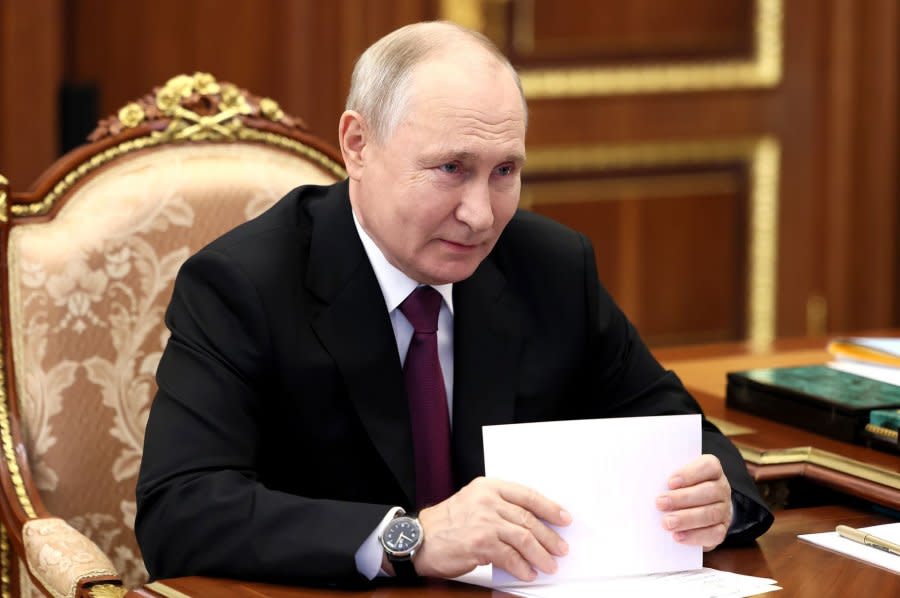Treasury tightens Russian price cap oil controls with additional sanctions

Dec. 20 (UPI) -- The Treasury Department on Wednesday tightened its price cap on Russian oil in an effort to continue to cut off funding for Moscow's war against Ukraine.
The Treasury sanctioned a ship manager owned by the Russian government as well as a handful of "obscure oil traders" it said has frequently transported Russian oil by sea to circumvent the price cap.
"Today's designations demonstrate our commitment to upholding the principles of the price cap policy, which advance the goals of supporting stable energy markets while reducing Russian revenues to fund its war against Ukraine," said Deputy Secretary of the Treasury Wally Adeyemo.
"Participants in the maritime transport of Russian oil, especially Tier 1 actors like traders, must adhere to the compliance guidelines agreed upon by the Price Cap Coalition or face the consequences."
The department said Sun Ship Management D Ltd. -- owned by the Russian government's fleet operator, Joint Stock Company Sovcomflot -- manages the SCF Primorye, a vessel that had been identified as transporting Russian crude oil priced above $60 per barrel in violation of the price cap.
The vessel had previously been sanctioned by Britain and the European Union.
The United States also imposed sanctions Wednesday on Bellatrix Energy Limited and Covart Energy Limited, both based in Hong Kong, as well as Volition DMCC, based in the United Arab Emirates, noting that all three "sharply increased" their share of the trade of Russian oil after the price cap was put in place.
"Since the imposition of the price cap, little-known oil traders with opaque ownership structures have emerged as frequent participants in the seaborne transport of oil produced by major Russian oil companies, shipping up to half of Russia's oil exports," the Treasury said.
The Treasury also announced it had updated the guidance on the implementation of the price cap in compliance with commitments made by the G7 leaders earlier this month, including by "imposing sanctions on those engaged in deceptive practices and by updating compliance rules and regulations as necessary."
In a joint statement, the G7 leaders said they were "determined to accelerate" work to reduce reliance on Russsian energy and commodities so that Russia "is no longer able to weaponize energy against us."
In August, U.S. officials said price caps imposed on Russian oil in the market had severely limited Kremlin finances without causing a severe market shortage. A year ago, Western nations imposed a $60 price cap on Russian oil for waterborne exports.
It said any nation that sells above the price cap could lose access to insurance and financial services that are essential for oil shipments in international waters.
